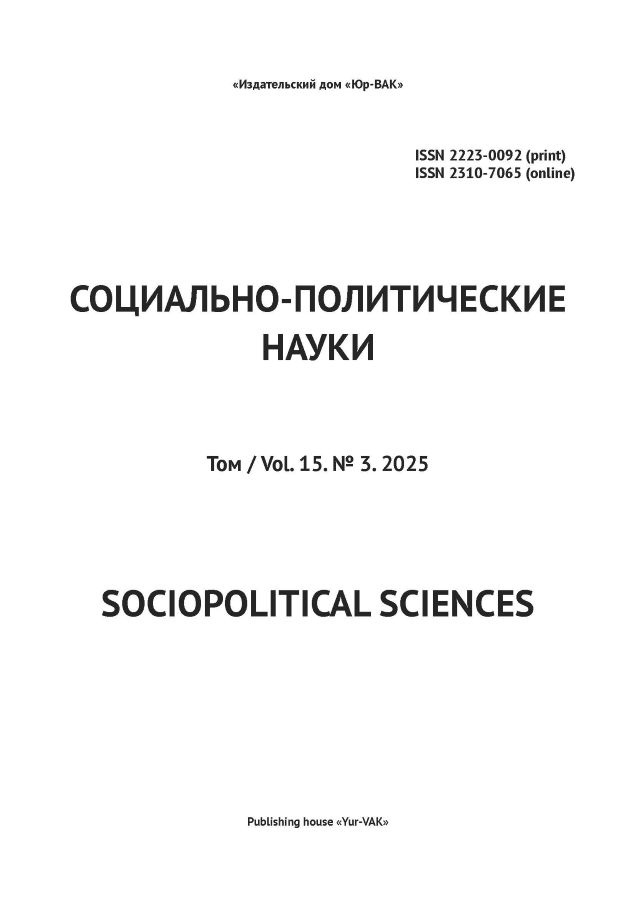Problem Issues of Collecting Personal Data in the Era of Global Digitalization
- Authors: Frolovskaya Y.I.1, Bondarenko T.A.1
-
Affiliations:
- Financial University under the Government of the Russian Federation
- Issue: Vol 15, No 3 (2025)
- Pages: 182-188
- Section: New issues in law
- URL: https://journals.eco-vector.com/2223-0092/article/view/687905
- DOI: https://doi.org/10.33693/2223-0092-2025-15-3-182-188
- EDN: https://elibrary.ru/TMJFYS
- ID: 687905
Cite item
Abstract
In the era of rapid development of information technologies, we are faced with a fundamental imbalance between the technical improvement of monitoring systems and the legal mechanisms for their regulation. The central problem of today’s digital landscape is the critical discrepancy between the technological potential of monitoring systems and the insufficient legal framework regulating their functioning. This gap is especially noticeable in the international legal field, where national legislations often fail to adapt to the global nature of technologies. The mass collection of users’ digital footprints gives rise to a whole range of ethical dilemmas that require careful consideration. Of particular concern is the balance between ensuring security and preserving the personal space of citizens. This article is an in-depth study of the key problematic aspects of the functioning of the personal data collection system in the context of global digitalization. Particular attention is paid to the analysis of the contradictions between the increasing technical capabilities of these systems and insufficient legal regulation of their use. The paper examines the ethical dilemmas that arise during the large-scale collection of users’ digital footprints and proposes conceptual approaches to the formation of a balanced regulatory system. The study covers a wide range of potential risks – from privacy breaches to the formation of social rating systems. The work uses an interdisciplinary approach that combines a comparative legal analysis of regulations and systemic modeling of potential data leakage risks. Critical contradictions between business needs to maximize the collection of user information and the fundamental right of citizens to privacy are identified. It is established that existing regulatory mechanisms do not correspond to the pace of development of data collection and analysis technologies. The authors formulated the principles of ethical use of data, taking into account the balance between innovative development and the protection of the digital sovereignty of the individual. The study of the problem includes an analysis of a wide range of potential socio-legal risks – from privacy breaches and discriminatory practices of algorithmic sorting to the creation of total social rating systems capable of transforming the very foundations of the social contract. The lack of transparent control mechanisms can lead to the formation of new forms of digital segregation and inequality.
Full Text
About the authors
Yulia I. Frolovskaya
Financial University under the Government of the Russian Federation
Author for correspondence.
Email: YIFrolovskaya@fa.ru
SPIN-code: 3756-5343
Cand. Sci. (Law); Associate Professor at the Department of Legal Regulation of Economic Activity of the Faculty of Law
Russian Federation, MoscowTatiana A. Bondarenko
Financial University under the Government of the Russian Federation
Email: TABondarenko@fa.ru
SPIN-code: 7438-6439
Cand. Sci. (Law); Associate Professor at the Department of Legal Regulation of Economic Activity of the Faculty of Law
Russian Federation, MoscowReferences
- Volkova N.S., Emelianov A.S., Efremov A.A. et al. Human rights in the information sphere in the context of digitalization. Scientific and practical manual. Moscow: Infotropic Media, 2023. 244 p. ISBN: 978-5-9998-0432-7. EDN: YIOXJF.
- Castells M. The information age: Economics, society and culture. O.I. Shkaratan (transl. from English under the sci. ed.). Moscow: Higher School of Economics, 2000. 608 p.
- Talapina E.V. Lawmaking under the influence of digital technologies. State Power and Local Self-government. 2024. No. 11. Pp. 38–42. (In Rus.). doi: 10.18572/1813-1247-2024-11-38-42. EDN: OJBMNM.
- Talapina E.V. The concept of dignity in the digital age. Laws of Russia: Experience, Analysis, Practice. 2024. No. 8. Pp. 83–87. (In Rus.). EDN: DUYAFN.
- Talapina E.V., Antopolsky A.A., Monakhov V.N. Human rights in the age of the Internet: Public law aspect. Moscow: Prospect, 2023. 144 p. ISBN: 978-5-392-37958-3. EDN: GFDYTY.
- Tereshchenko L.K. Big data in the public and private spheres. Information Law. 2023. No. 3 (77). Pp. 4–9. (In Rus.). doi: 10.55291/1999-480X-2023-3-4-9. EDN: XIPBHO.
- Data privacy rules: Insights from Shoshana Zuboff’s the age of surveillance capitalism. New York, 2021. P. 3.
- Floridi L. On human dignity and the foundations of the right to privacy. 2016. doi: 10.2139/ssrn.3839298.
- Lessig L. Privacy as property. Social Research: An International Quarterly. 2002. No. 69 (1). Pp. 247–269.
- Nissenbaum H.F. Protecting privacy in the information age: The privacy challenge in public places. In: Law and philosophy. 1998.
- Solov D.J. Understanding privacy. Harvard University Press, 2008.
Supplementary files








